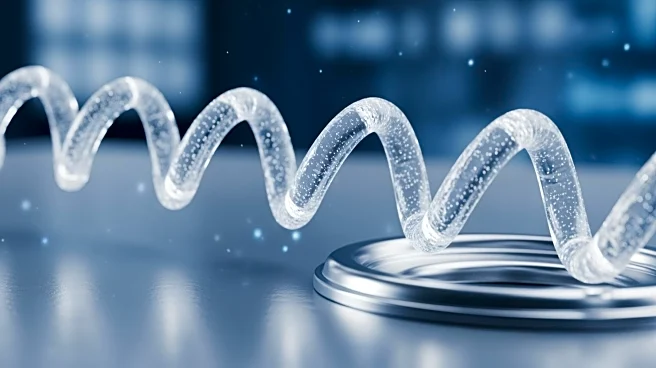What's Happening?
Research has focused on the use of antimicrobial peptides (AMPs) to target adhesion proteins of peri-implant pathogens, which are key virulence determinants in microbial colonization. The study utilized
molecular docking and dynamics simulation to assess the efficacy of AMPs against proteins like FimA and BspA. By preventing microbial attachment and biofilm maturation, these peptides could serve as strategic therapeutic agents in peri-implantitis prevention. The study highlights the potential of AMPs in reducing bacterial adhesion and pathogenicity, offering a promising approach to managing peri-implant infections.
Why It's Important?
Peri-implantitis is a significant concern in dental and orthopedic implant procedures, often leading to implant failure and requiring costly interventions. The development of AMPs as therapeutic agents could provide a novel solution to prevent infections and improve implant longevity. By targeting early adhesion events, AMPs offer a proactive approach to infection control, potentially reducing the need for antibiotics and minimizing the risk of antibiotic resistance. This research underscores the importance of innovative strategies in managing implant-related infections.
What's Next?
Further studies are needed to validate the efficacy of AMPs in clinical settings and compare their performance against standard antimicrobial agents. Researchers may explore the integration of AMPs into implant materials, enhancing their preventive capabilities. Additionally, understanding the molecular mechanisms of AMP action could lead to the development of more targeted and effective therapeutic strategies.









